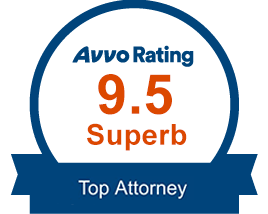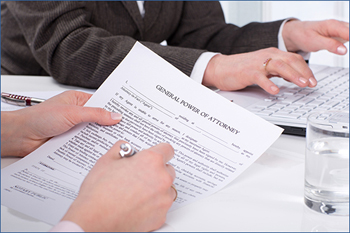Power of Attorney
Need a Power of Attorney Lawyer? The Law Offices of John W. Lee, P.C., understands that a durable power of attorney can be overlooked as an essential element of an estate plan.

We Want To Help You!
Schedule an Appointment at One of Our Four Convenient Hampton Roads Offices Near You!
Estate Planning Special Offers
Virginia Power of Attorney Law
 People usually associate estate planning with death and arranging for the distribution of assets to loved ones. A Virginia elder law attorney at The Law Offices of John W. Lee, P.C., understands that a durable power of attorney can be overlooked as an essential element of an estate plan. While wills and trusts focus on the distribution of assets and wealth, powers of attorney offer a method for people to manage their financial and business affairs while they are alive.
People usually associate estate planning with death and arranging for the distribution of assets to loved ones. A Virginia elder law attorney at The Law Offices of John W. Lee, P.C., understands that a durable power of attorney can be overlooked as an essential element of an estate plan. While wills and trusts focus on the distribution of assets and wealth, powers of attorney offer a method for people to manage their financial and business affairs while they are alive.
What Is a Power of Attorney?
The Virginia Uniform Power of Attorney Act defines a power of attorney as a written document designating an agent to act on behalf of a principal who signed it. The document grants as much or as little authority to the agent as is specified by the principal.
Any person can be named as an agent. The law defines a “person” as any of the following:
- Individuals
- Corporations
- Estates
- Trusts
- Partnerships
- Limited liability companies
A principal in Newport News or Chesapeake can also designate a government agency or any lawfully recognized entity as its agent.
Types of Powers of Attorney
The authority granted to an agent by a principal depends upon the type of power of attorney. The following are four types of powers of attorney:
- Durable power of attorney: The authority granted to an agent under a power of attorney terminates upon the death of the principal. It would also terminate as a result of the incapacity of the principal were it not for the Virginia Uniform Power of Attorney Act. The law prevents incapacitated principals from being left without anyone to manage their affairs by making all powers of attorney durable unless there is language included stating otherwise.
- Springing power of attorney: A principal might want to restrict a power of attorney to specific situations. For example, a person about to undergo surgery might want to grant authority to an agent only during the period of the principal’s incapacity. A springing power of attorney accomplishes this by “springing” into effect while the principal is under anesthesia or otherwise incapable of handling financial affairs. Once the principal recovers, the authority of the agent becomes dormant.
- General power of attorney: These types of powers of attorney grant the broadest authority to an agent. An agent has the same authority as the principal.
- Limited power of attorney: Powers of attorney can be limited to a specific time or event. For example, a principal could use a limited power of attorney to allow an agent to handle the purchase of a boat on behalf of the principal. The agent would have authority to do whatever is needed on behalf of the principal to complete the transaction. The power of attorney could not be used by the agent for purposes other than the purchase of the boat.
The Uniform Power of Attorney Act defines incapacity of a principal as being unable to manage business affairs or property due to being incapable of evaluating and processing information needed to make decisions. A principal who is missing or has left the country and is unable to return would be treated as someone who is incapacitated according to the terms of the statute.
Legal Requirements for a Valid Power of Attorney
An original, a photocopy or a copy transmitted electronically is acceptable as a power of attorney under the Uniform Power of Attorney Act. Section 64.2-1603 of the act provides that a power of attorney must be signed by the principal, but it also allows a principal who is unable to sign it to direct someone else to sign the principal’s name to the document. The signature of the principal must be acknowledged in the presence of a notary in order to be recordable with the Circuit Court.
Virginia power-of-attorney lawyers often advise clients to have older powers of attorney reviewed to determine if they are durable. The Uniform Power of Attorney Act states that powers of attorney created after July 1, 2010 are durable unless they contain language stating otherwise. Those documents created prior to July 1, 2010 should be looked at by a Virginia elder law attorney or by an estate planning attorney to determine if changes need to be made to make them durable.
Duties of Agents Under a Power of Attorney
The Uniform Power of Attorney Act allows an agent to be compensated for the services provided to the principal and to receive reimbursement for expenses. Principals are entitled to expect the following from their agents:
- Perform their duties with care, diligence and competence
- Be loyal toward their principal
- Keep accurate records
- Avoid conflicts of interest
Principals should consult with competent Virginia power-of-attorney lawyers about adding other duties that might be of concern to the principal.
What Is a Power-of-Attorney Limitation on the Ability of Principals to Act?
Principals who are not incapacitated retain full control over the handling of their financial and business affairs even if there is a power of attorney in place. They maintain the right to terminate the power of attorney or control the activities of the agent. Principals concerned about the activities of their agents should seek advice their estate planning attorney.
Terminating a Power of Attorney
Powers of attorney terminate upon the happening of any of the following events:
- Death of the principal
- Death or incapacity of the agent
- Revocation of agent’s authority by principal
- Agent’s resignation
- Completion of the purpose of the power of attorney
If the agent and principal of a power of attorney are married, a divorce or other proceeding to terminate the marriage also terminates the power of attorney. The same is true for child custody, visitation and support actions between the agent and the principal.
What Happens if a Hampton Roads Resident Does Not Have a Power of Attorney?
Powers of attorney offer more than convenience when a principal is too busy to handle a business or financial matter. Making them part of an estate plan ensures the principal of having a trusted individual ready to handle the payment of bills and other essential financial matters in the event of the physical or mental incapacity of the principal.
Contact an Estate Planning Attorney Today
The Virginia elder law attorneys at The Law Offices of John W. Lee, P.C., have experience advising Hampton Roads residents about powers of attorney and the Uniform Power of Attorney Act. Schedule a free and confidential consultation by calling them today at (757) 896-0868
